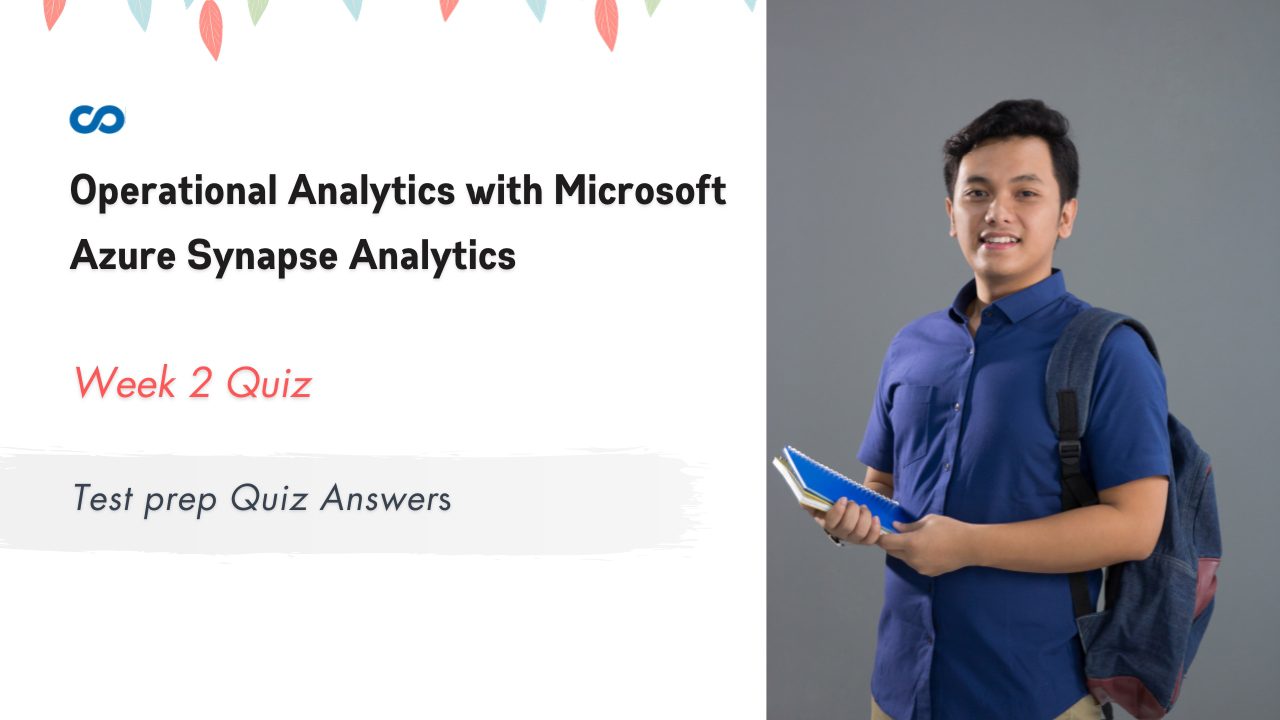Operational Analytics with Microsoft Azure Synapse Analytics Week 2 | Test prep Quiz Answers
In this article i am gone to share Coursera Course: Operational Analytics with Microsoft Azure Synapse Analytics Week 2 | Test prep Quiz Answers with you..
Enrol Link: Operational Analytics with Microsoft Azure Synapse Analytics
Operational Analytics with Microsoft Azure Synapse Analytics Week 2 | Test prep Quiz Answers
Test prep Quiz Answers
Question 1)
HTAP (Hybrid Transactional/Analytical processing) enables business to run advanced analytics in near real-time on data stored and processed in which of the following?
- OLTP
- ELT
- ETL
- OLAP
Question 2)
Which of the following are common use cases for using Azure Synapse Link for Azure Cosmos DB? Choose all that apply.
- Supply chain analytics, forecasting and reporting
- Integration with API’s such as Gremlin API, Cassandra API, and Table API
- IOT predictive maintenance
- Real-time personalization
Question 3)
With Synapse Link, you can directly connect to your Azure Cosmos DB containers from Azure Synapse Analytics. Azure Synapse Analytics currently supports Synapse Link with which of the following? Choose all that apply.
- Dedicated SQL Pool
- Serverless SQL pool
- Synapse Apache Spark
Question 4)
True or False
In Azure Cosmos DB you can enable an analytical store on an existing container.
- True
- False
Question 5)
How can you manage the lifecycle of data and define how long it will be retained for in an analytical store?
- Configure the purge duration in a container
- Configure the deletion duration for records in the transactional store.
- Configure the default Time to Live (TTL) property for records stored.
Question 6)
The benefits of enabling the analytical store on an Azure Cosmos DB container include which of the following? Choose all that apply.
- All transactional data is automatically stored in a fully isolated Column store
- All transactional data is automatically stored in a fully isolated Table store
- Run near real-time analytics with no-ETL required
- provides full performance isolation from transactional workloads

